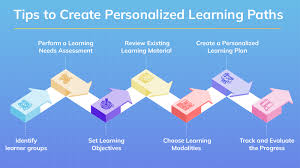The Future of Education: How Technology is Transforming Learning
Education has always been the foundation of personal growth and societal development. In today’s rapidly changing world, technology is reshaping the way we learn, teach, and interact with knowledge. The traditional classroom model is no longer the only path to education. Instead, digital innovations are creating opportunities for students across the globe, regardless of geographical or financial barriers.
One of the most significant changes is the rise of online learning platforms. These platforms allow students to access lectures, assignments, and resources at any time, breaking the limitations of location and schedule. Universities and schools are integrating online classes with physical classrooms, creating a hybrid model that ensures flexibility while maintaining academic quality.
Artificial Intelligence (AI) is also playing a major role in education. AI-powered tools can personalize the learning experience for students. For example, if a student struggles with mathematics but excels in language, AI systems can design customized lessons to strengthen weak areas while nurturing existing strengths. This personalized approach not only improves academic performance but also boosts confidence.
Another transformative factor is virtual and augmented reality (VR/AR). These technologies make learning more engaging by creating immersive experiences. A history student can virtually walk through ancient civilizations, while a medical student can practice surgeries in a safe, simulated environment. Such interactive methods enhance understanding and retention compared to traditional textbooks.
Technology is also making education more inclusive. Students with disabilities now have access to tools like screen readers, speech-to-text applications, and interactive e-learning platforms that cater to their unique needs. This ensures that no student is left behind in the digital age.
However, the future of education also faces challenges. The digital divide remains a major concern, as many students in underdeveloped areas lack access to reliable internet or modern devices. To make education truly global and equitable, governments and institutions must work towards providing affordable access to technology for all learners.
In conclusion, the future of education is deeply intertwined with technology. Online learning, AI, VR/AR, and digital inclusivity are revolutionizing the way knowledge is shared and absorbed. While challenges remain, the transformation of education promises a more personalized, accessible, and engaging learning journey for future generations.


